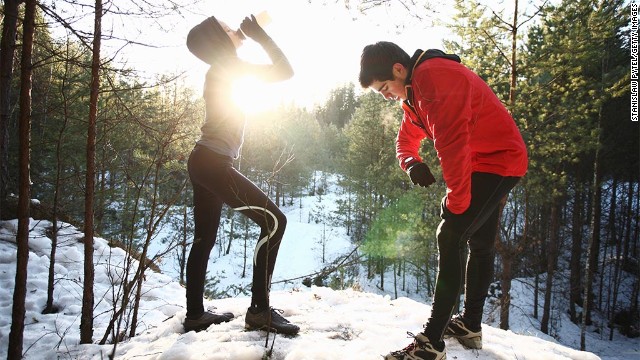
Cold weather causes muscles to lose more heat and contract, causing tightness throughout the body. Joints get tighter, muscles can lose their range of motion and nerves can more easily be pinched, according to Los Angeles-based orthopedic physical therapist Vivian Eisenstadt.
Thanks to the effects of colder temps, muscles are forced to work much harder to complete the same tasks they complete easily in milder weather. This causes more damage to the muscle tissue and can result in increased soreness. To counteract the damage, be sure to warm up for a little longer than usual.
“It is normal to feel muscle soreness for a few days after exercise, especially if it is a different type of activity or at a more intense level than your body is used to,” says Amy McDowell, a physical therapist and Pilates instructor from ARC Physical Therapy in Chicago.
“If you feel more sore in the winter after the same level of exercise than you do the rest of the year, it could be that your body needs a longer warm-up period.”
Try beginning your workout with light cardio exercises, like brisk walking. This will raise your core temperature and ensure that oxygen and blood are flowing throughout your body.
A basic rule of thumb is that you should warm up for 10 minutes when the temperature is between 35 and 45 degrees Fahrenheit. For each 10-degree temperature drop below 35, extend your warm-up by five minutes.
Some bodyweight exercises — like push-ups, dips, squats, lunges and bicycle crunches — are ideal for getting your blood flowing after your warm-up walk, Mentore says. Then, after those exercises, stretch only the tightest muscle groups in your body; for most people, these groups include the hamstrings, quadriceps, chest and shoulders.
Follow your warm-up with a cool-down that takes about the same amount of time. However, in addition to stretching the body’s tightest muscle groups, also focus on other areas like the back, arms and calves. “This will prevent muscle soreness and enhance your overall performance during the winter,” Mentore says.
Source: upwave

